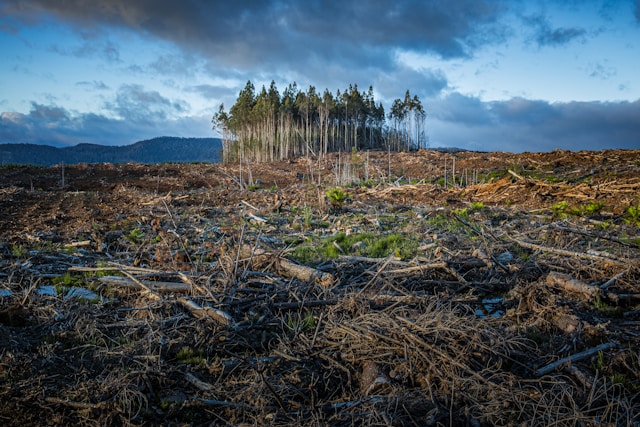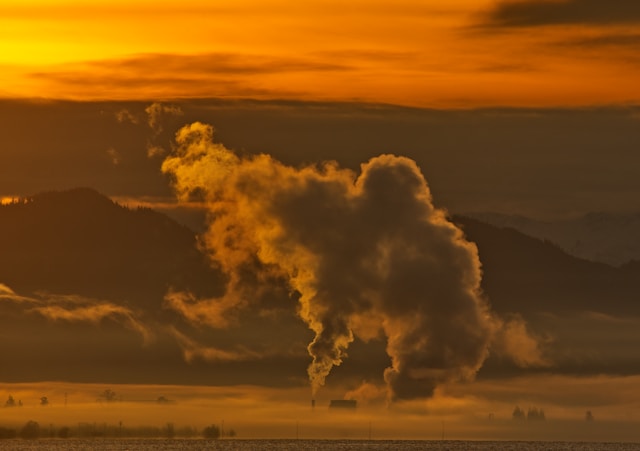- Details

Photo by Matt Palmer on Unsplash
The impact of climate change is far-reaching, and yet a disproportionately large number of Indigenous populations across the US are impacted, with the State of the World’s Indigenous Peoples recent publication exposing this stark imbalance. It shows that while Indigenous Peoples make up just six percent of the global population and continue to safeguard nearly 80 percent of the planet’s remaining biodiversity, they receive less than one percent of international climate funding.
On top of this, different Indigenous populations, including those native to the contiguous United States, Alaska Natives, and the Pacific Islanders, are also more vulnerable to the impacts of climate change on a physical, mental, and cultural level. In this article, we will delve more into these unique vulnerabilities and what can be done to help address this issue.
Why are indigenous communities at the forefront of climate impact?
Although impacting the worldwide population at large, several climate-related hazards are more prevalent or unique to Indigenous populations.
Water-related illnesses
Many Indigenous communities have limited access to safe drinking water, particularly for those living in remote lands. Untreated or contaminated water can cause a range of disease outbreaks and illnesses, including diarrhea, cholera, typhoid fever, hepatitis A, and cryptosporidiosis.
Climate change continues to threaten this already limited water supply. Increasing water temperatures can encourage the growth of harmful algal blooms, while changing rainfall patterns can impact both the rising sea level, which can generate saltwater contamination, and play a role in severe droughts, which can impact clean water shortage.
Respiratory illnesses
Indigenous communities located near urban or industrial areas are already exposed to harmful air pollution, which can cause or worsen asthma, pneumonia, bronchitis, and other respiratory conditions. Their access to healthcare can also be limited, meaning these conditions can often be left untreated.
Climate change can further impact the levels of outdoor air pollutants, including ground-level ozone, particulate matter in wildfire smoke, and dust from increasing droughts.

Climate change can impact the level of outdoor air pollutants. Photo by Chris LeBoutillier on Unsplash.
Cultural and mental health effects
The impact of colonization is profound and lasting. From the destruction of traditional lands, languages, and cultures, forced displacement, and severe population decline due to disease, warfare, and enslavement, it's little wonder that many Indigenous Peoples experience trauma. Many may also experience generational trauma, where descendants of those who experienced the original trauma still feel the psychological effects of it, despite not experiencing the trauma directly.
For many communities, relationships among people, wildlife, and the natural environment continue to be the key to their mental and spiritual health, and climate change, which results in even further loss of land, can negatively impact this. Land loss can result in the separation of families, a tribe’s culture, their livelihoods, traditional foods, and sacred places, while bringing up the memory of past traumas, all resulting in an increased risk of mental health impacts.
Indigenous teenagers in particular face various risk factors when it comes to mental health, including limited access to treatment, introduction to alcohol and marijuana at a young age, a loss of cultural identity, and generational trauma. According to recent data, nearly one in four Indigenous teenagers has contemplated suicide.
How can we combat this? Resilience and Indigenous-led solutions
For those committed to addressing the complex challenges and providing essential care for Indigenous People suffering from poor mental health, exploring accredited online mental health counseling programs can equip them with the vital skills needed. Increasing ease of access to these services can also play a key role in improving the state of Indigenous Peoples' mental health.
At a broader level, the State of the World’s Indigenous Peoples report warns that as the world embraces a renewable energy future, there is a risk these “greener solutions” can still cause as much of a threat to Indigenous Peoples as climate change itself. To resolve this, it recommends that further climate change action be implemented with Indigenous People at the centre of the design, utilizing their generational knowledge to consult, shape, and implement policy in tandem with larger governing bodies.
The report also calls for a fundamental shift to not just increase funding, but change who controls it through the creation of Indigenous-led financial mechanisms, formal recognition of Indigenous governance systems, and the protection of data sovereignty - ensuring communities can control how knowledge about their lands and livelihoods is collected and used.
The bottom line is, if climate action continues to be implemented without guidance from Indigenous Peoples, the risk of replicating extractive and exclusionary systems will rise again. Indigenous communities worldwide possess valuable knowledge and practices for building resilience to climate change stemming from traditional ecological knowledge, sustainable land management processes, and social structures, and it is this resilience, alongside embracing the proper guidance, that will help us address the issue of climate change most effectively and safely.
